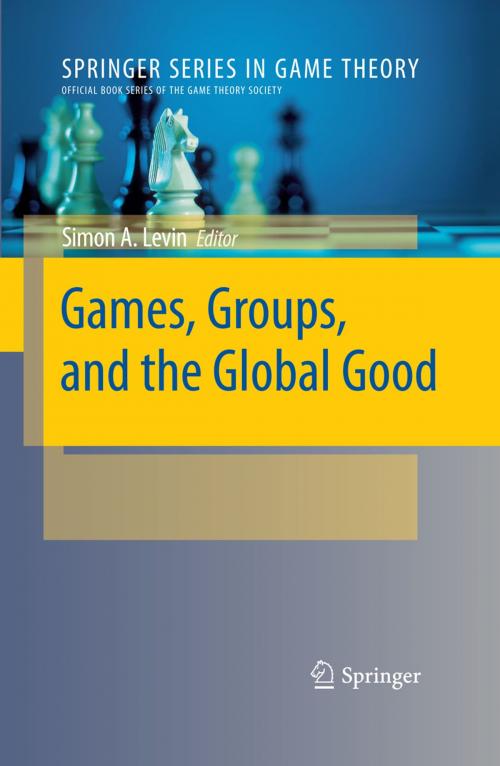Games, Groups, and the Global Good
Business & Finance, Economics, Theory of Economics, Nonfiction, Social & Cultural Studies, Political Science| Author: | ISBN: | 9783540854364 | |
| Publisher: | Springer Berlin Heidelberg | Publication: | June 9, 2009 |
| Imprint: | Springer | Language: | English |
| Author: | |
| ISBN: | 9783540854364 |
| Publisher: | Springer Berlin Heidelberg |
| Publication: | June 9, 2009 |
| Imprint: | Springer |
| Language: | English |
How do groups form, how do institutions come into being, and when do moral norms and practices emerge? This volume explores how game-theoretic approaches can be extended to consider broader questions that cross scales of organization, from individuals to cooperatives to societies. Game theory' strategic formulation of central problems in the analysis of social interactions is used to develop multi-level theories that examine the interplay between individuals and the collectives they form. The concept of cooperation is examined at a higher level than that usually addressed by game theory, especially focusing on the formation of groups and the role of social norms in maintaining their integrity, with positive and negative implications. The authors suggest that conventional analyses need to be broadened to explain how heuristics, like concepts of fairness, arise and become formalized into the ethical principles embraced by a society.
How do groups form, how do institutions come into being, and when do moral norms and practices emerge? This volume explores how game-theoretic approaches can be extended to consider broader questions that cross scales of organization, from individuals to cooperatives to societies. Game theory' strategic formulation of central problems in the analysis of social interactions is used to develop multi-level theories that examine the interplay between individuals and the collectives they form. The concept of cooperation is examined at a higher level than that usually addressed by game theory, especially focusing on the formation of groups and the role of social norms in maintaining their integrity, with positive and negative implications. The authors suggest that conventional analyses need to be broadened to explain how heuristics, like concepts of fairness, arise and become formalized into the ethical principles embraced by a society.















